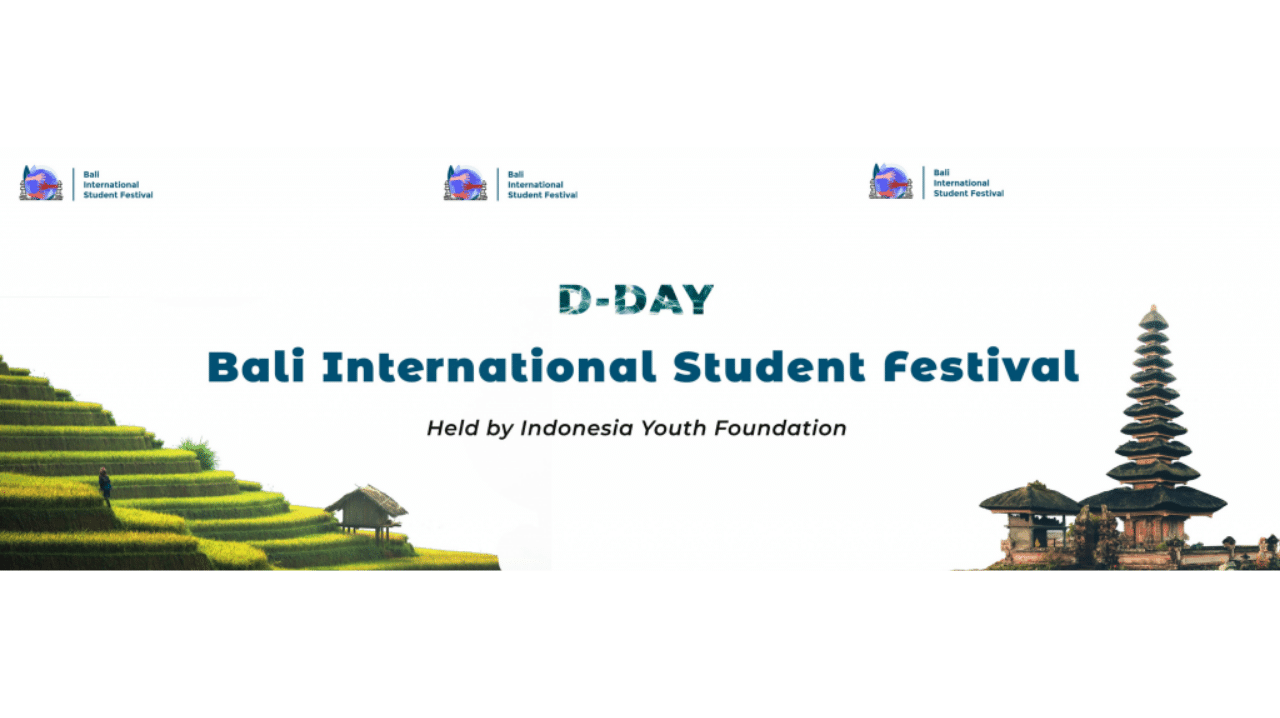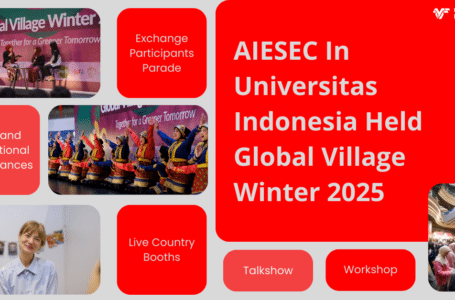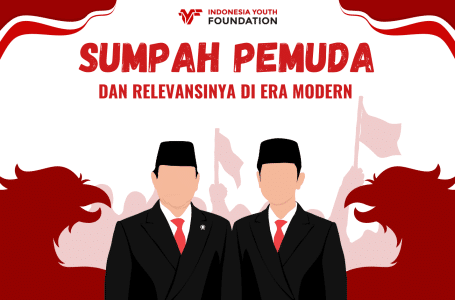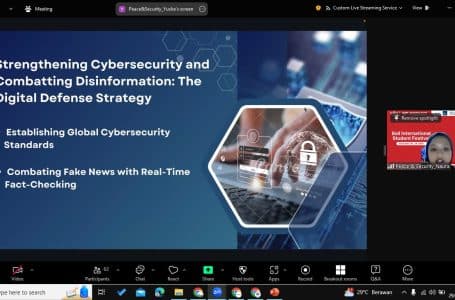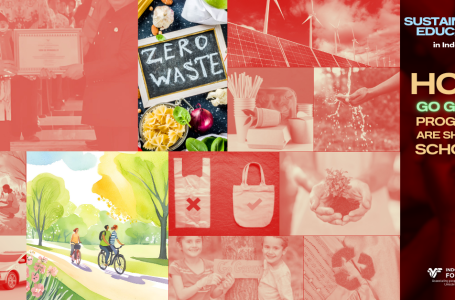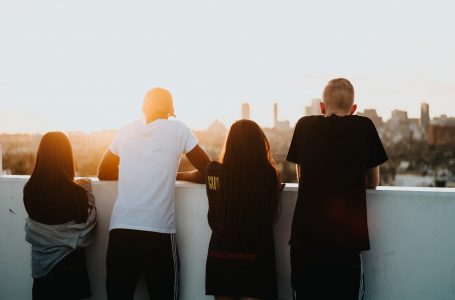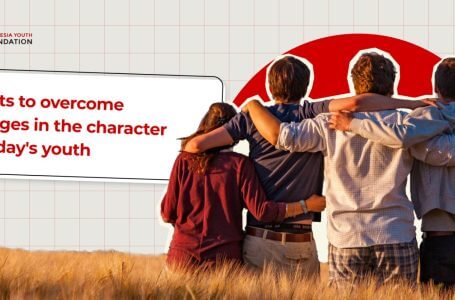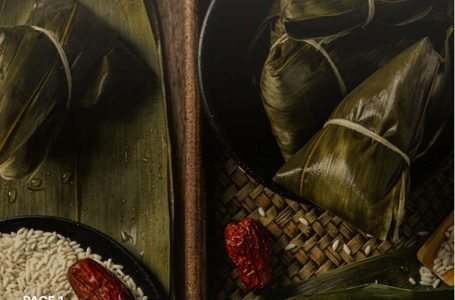AIESEC In Universitas Indonesia Held Global Village Winter 2025
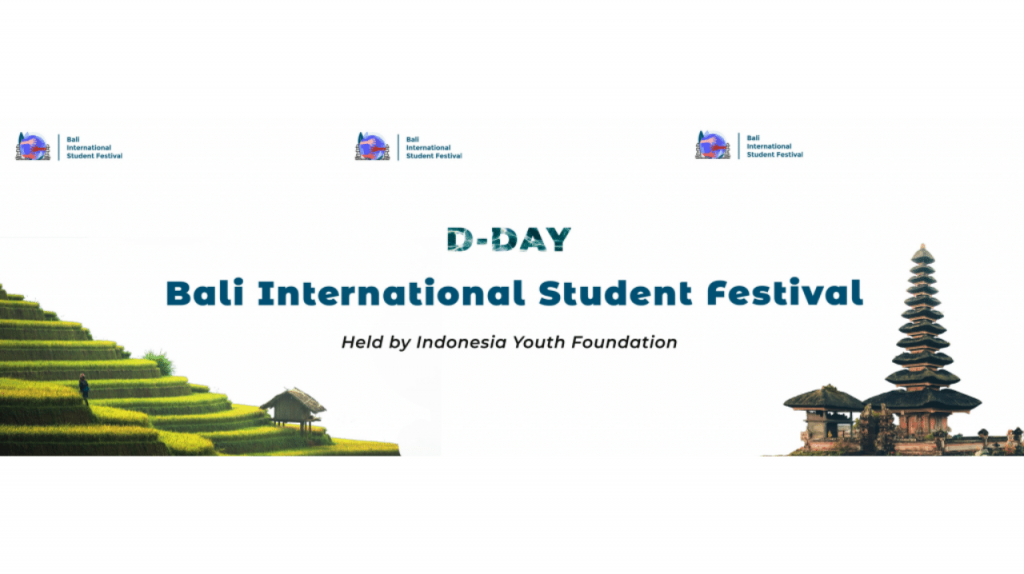 The Bali International Student Festival (BISF) is held 4 days, from 15 until 18 July 2021 through Zoom meeting with over 534 participants from 56 countries. BISF is a conference consisting of panels that discussed the effect of “Post-Pandemic World”, the importance of involvement, and evaluating the effect of each of us on global society. This festival aims to bring together inspired youth people that want to exchange ideas and work out solutions together.
The Bali International Student Festival (BISF) is held 4 days, from 15 until 18 July 2021 through Zoom meeting with over 534 participants from 56 countries. BISF is a conference consisting of panels that discussed the effect of “Post-Pandemic World”, the importance of involvement, and evaluating the effect of each of us on global society. This festival aims to bring together inspired youth people that want to exchange ideas and work out solutions together.
Disruptions that exist during the Covid-19 pandemic are mainly disruptions in the order of life, such as in social interaction, a culture of shaking hands, economics in all forms of buying and selling, and politics. The details in the culture of a society that has been shaped by these ecological conditions certainly bring changes to various aspects of life in society.
This is reflected in the rise of people using masks wherever they travel, as well as the habit of carrying hand sanitizer or washing hands before and after handling visible objects. Even with the habit of checking body temperature in certain places, it is an effort to detect the Covid-19 that can affect a person’s body temperature. But all this is done to break the chain of the Covid-19 so that people can live as usual again. No exception, in the tourist area of Bali, which is very famous, new habits are also formed, so that tourists implement health protocols as perfectly as possible. Starting from Arrival or Departure which is applied at Bali Airport, and so on. Because of that also, BISF held virtually to balance the situation of this pandemic.
On the first agenda of this festival, begin with the Opening Speech, from Our Project Leader of BISF, Dwianie Rizqi, and the Founder of Indonesia Youth Foundation, Fauzi Wahyu Zamzami. They are very grateful for all the dedication that has been maximized by the committee and wished this event could be offline in the next year.
After that, Anak Agung Mia Intentilia as a Speaker talked much about Balinese in the Grand Seminar of this event. She described Bali in very detail and complete, cause she is originally from Bali and knows Bali well. As she said in the middle of her speech, “When talking about Bali, not only about Beach, but also about nature, culture, tourism, and hospitality, also the society”.
Besides, she talked about the Post Pandemic World and anything that changed with the Pandemic situation, starting from digital habits, in the digital economy, tourism and culture, youth empowerment, education, mental health, and technology. So she mentioned Multi-track diplomacy, which is a conceptual way to view the process of international peacemaking as a living system. It looks at the web of interconnected activities, individuals, institutions, and communities that operate together for a common goal: A world at peace. These are the nine tracks as the approach to peace in Pandemic situation;
- The government, tween bilateral and multilateral cooperation with other countries and international organizations. The post-pandemic world, maintain and strengthen government cooperation.
- The professional Conflict Resolution/ the Non-Government. Post-pandemic world, focus on meditation.
- Business, which has economic opportunities. Post-pandemic world, Ensuring Job fields for people, employment’s rights, adjustment with health protocol, and development of the digital economy.
- Private Citizen, including youth for leading actions. Post-pandemic world, the private citizens continue to support one another from the smallest level of the community.
- Research, Training, and Education, which the academics ensuring education access, and provide recommendations for the government policies. Post-pandemic world, research collaboration regarding COVID-19 pandemic and the social impact.
- Peace activism. Post-pandemic world, critical thinking in assessing the current issues.
- Religion, which supports though religious communities in mitigating the COVID-19 impacts. Post-pandemic world, inter-faith dialogue to generate mutual understanding and cooperations.
- Funding is to financially support others. Post-pandemic world, we have a specific target, such as safety kits, health workers, and patients in remote areas.
- Media and Public Opinion to filter information on media. Post-pandemic world, hopefully, we can use social media wisely.
She closed by saying the message, that after the pandemic world, we have to know 3R; Resilience, Recovery, and Renewal.
On the other hand, the second day of the forum was given to each panel, including Education, Mental Health, Economy, Tourism & Culture, Technology, and Youth Empowerment. And several speakers raised the important issues in each panel; Fatou Hydra as the Speaker of Digital Economy, I Ketut Budarma as the Speaker of Tourism and Culture, Iswan Saputro as the Speaker of Mental Health, Dhruv Panchal as the Speaker of Youth Empowerment, Mohamad Desgia as the Speaker of Education, and Umer Inam as the Speaker of Technology.
Among these parts, complement each other to find the right solution, because the Covid-19 is still a very difficult problem to solve, but we must work hand in hand to find a solution to this problem. There must be cooperation between the government and the community to create the best results. Starting from the public’s obedience to the government, as well as the transparency of the aspirations distributed by the community must be easily accepted by the government too. So, there is always an evaluation of things that are no longer relevant to it.
The technology panel discussed the solutions with affordable internet services and devices, digital training, quality tech support, and also with UN role. The government should improve the regulations strictly, for example, that the government should punish the perpetrator of cybercrime strictly through legal protection to guarantee the consumers services. Organizations should make use of Multi-Factor Authentication (MFA) or Two-Factor Authentication (2FA) wherever possible.
Digital Economy Panel delegates have a strong opinion about how to solve the economy during the pandemic especially for Small Medium Enterprise (SME) to recover its business that was affected a lot by the Covid-19 pandemic. And also the government should devise pro SME’s policies such as extending loans and advocacy the develop the IT infrastructure to support them such as create a free portal whereby by e-learning techniques the citizen are properly educated and aware of the current approaches.
The education panel emphasized the digital education of Yellow Hat because it allows us to access class lecture recordings even after the class is over, therefore make it easier to study in case someone misses a class, the digital shift has canceled internships and training for a lot of us, yet several organizations and companies are offering online internship, therefore we can gain work experience without having to travel to offline, familiarity with technology, and good environment.
Youth Empowerment panel has a mission statement, “Empowering the youth of age 15-24 to reach their full potential through education, mentorship, and intervention programs especially in the terms of distribution of digital essentials in marginalized communities, digital literacy and capacity building of youths, and inclusive stakeholders synergy involving marginalized communities to enhance they are well being”.
Tourism and culture have the main project in digital tourism, sustainability, and also promote tourism through social media with their strengths; local community involvement, spreading awareness on sustainability, involvement of local communities can lead to job opportunities, and entertainment.
Mental Health discussed during this pandemic, where pressures come due to multiple factors, the percentage of people who have problems with mental health is increasing. Therefore, maintaining the stability of mental health is a must. We should also be mindful of and avoid developing habits such as smoking, drinking, and overeating that may not be beneficial in the long run. Try to reassure anyone who may be concerned, and keep in touch with anyone you know who lives alone.
On the last day, there are best delegates in each panel; Mohd Maaz Khan from India (Technology Panel), Sardor Saidmorodov from Uzbekistan (Digital Economy), Shabil Syach Pachlefi from Indonesia (Education), Padma Priya from India (Mental Health), Ripa Widiana from Indonesia (Tourism), and Muhammad Tashfeen Javed from Pakistan (Youth Empowerment). In Addition, the Best Idea, from the Education panel team, are Cheryl Kanza (Indonesia), Benedict Shabong (India), Diya (India). The best Presentation from the Mental Health panel team, are Syahilla (India), Padma Priya (India), Farsya (Indonesia). Moreover, the Best representatives are Sardor Saidmurodov (Uzbekistan) and Yashica Sharma (India).
